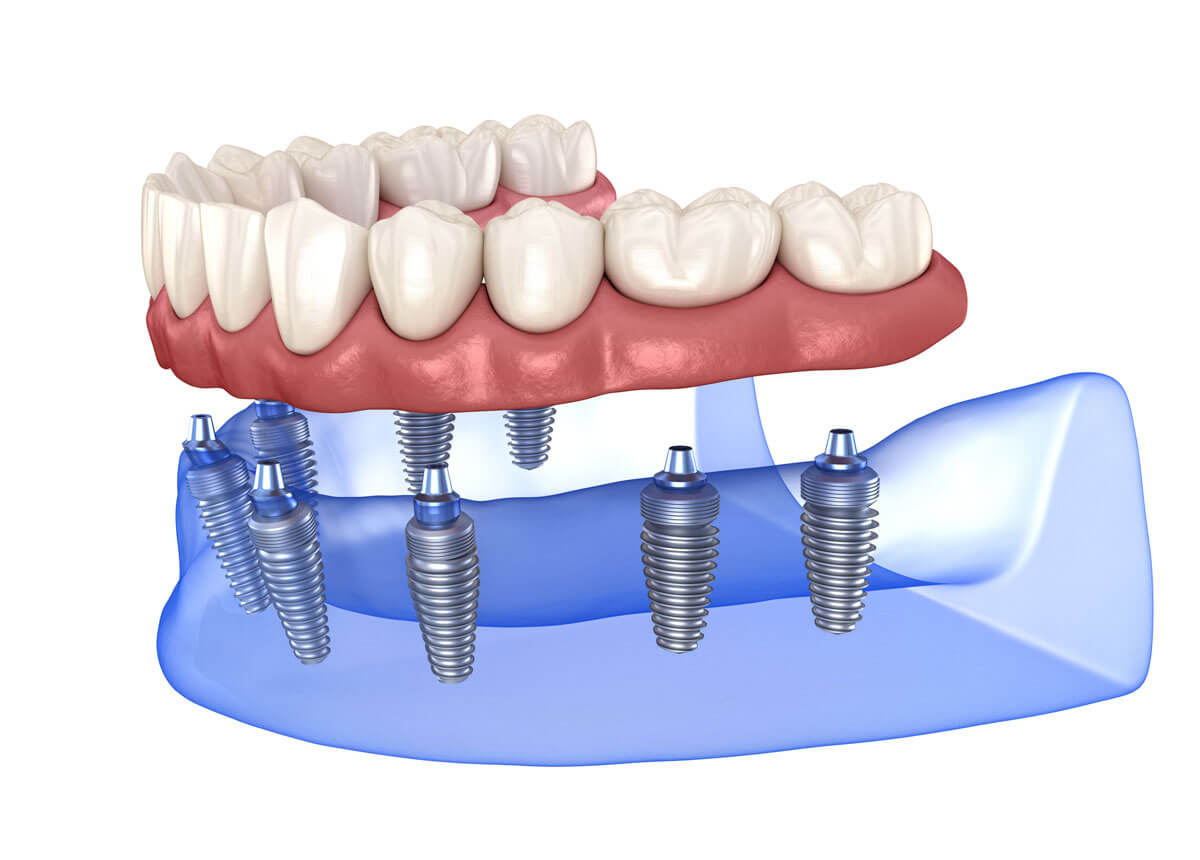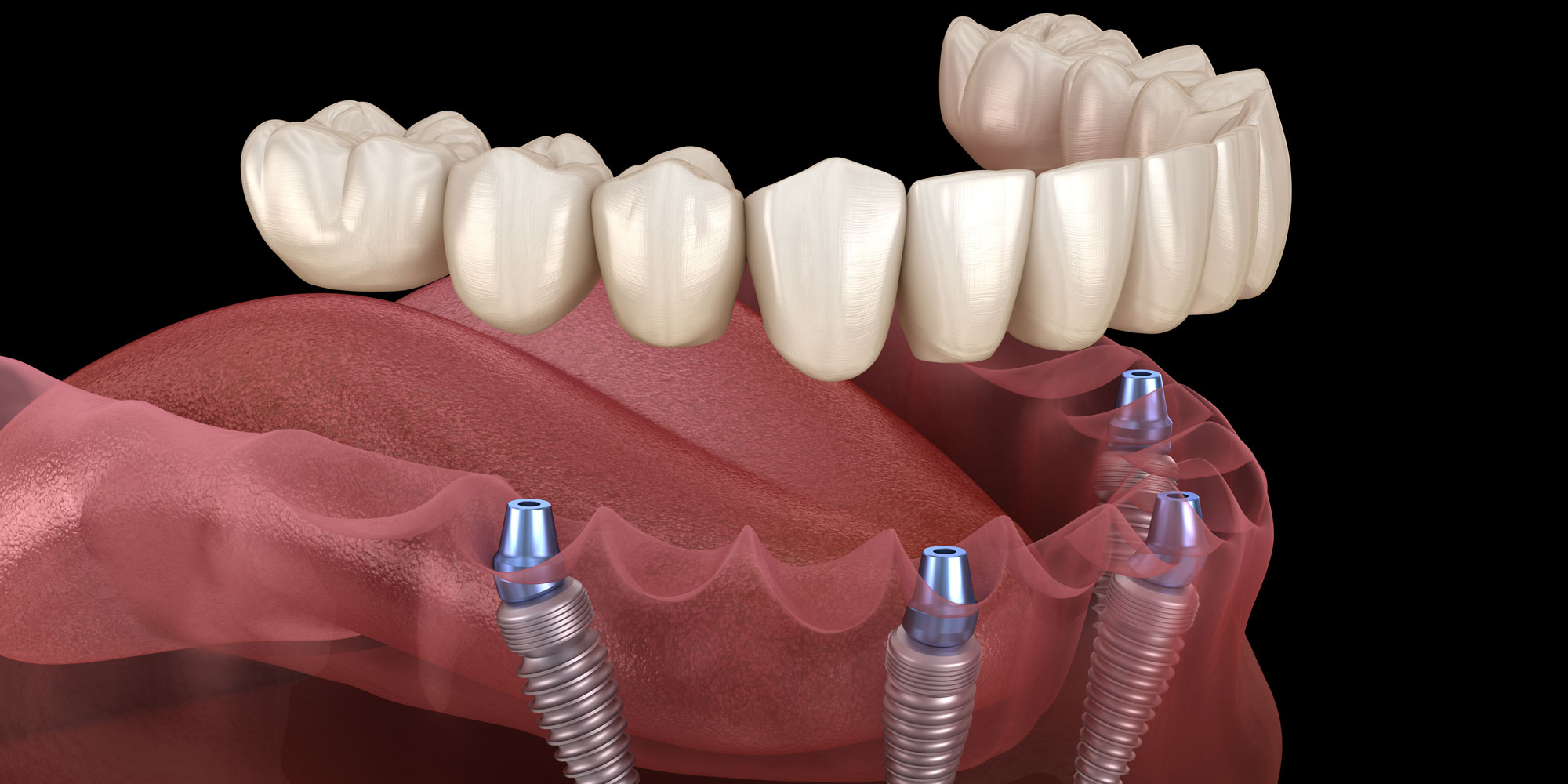6 Simple Techniques For Dental Sense
6 Simple Techniques For Dental Sense
Blog Article
Indicators on Dental Sense You Need To Know
Table of ContentsFacts About Dental Sense RevealedThe Definitive Guide to Dental SenseGetting The Dental Sense To WorkDental Sense - An Overview
are clinical tools surgically implanted into the jaw to recover a person's ability to chew or their appearance. They supply assistance for synthetic (fake) teeth, such as crowns, bridges, or dentures. When a tooth is lost as a result of injury or condition, an individual can experience issues such as rapid bone loss, defective speech, or changes to eating patterns that cause discomfort.Dental implant systems include a dental implant body and oral implant abutment and might additionally consist of a joint fixation screw. Front tooth filling. The oral implant body is surgically placed in the jawbone in area of the tooth's root. The oral implant abutment is generally affixed to the dental implant body by the abutment addiction screw and extends via gum tissues right into the mouth to support the connected fabricated teeth
(https://www.edocr.com/v/djpmklwo/matthewmusic33101/dental-sense)Structure of The Dental Implant System selecting dental implants, talk with your dental supplier regarding the potential advantages and dangers, and whether you are a candidate for the treatment. Points to think about: Your total health and wellness is a crucial consider identifying whether you are a great prospect for oral implants, exactly how long it will certainly require to recover, and the length of time the dental implant may remain in area.
Smoking cigarettes might affect the recovery procedure and reduce the long-lasting success of the implant. The recovery process for the implant body might take several months or longer, throughout which time you normally have a temporary joint in place of the tooth. the dental implant procedure: Very carefully follow the dental hygiene guidelines given to you by your oral copyright.
The smart Trick of Dental Sense That Nobody is Discussing
Implant failure can result in the requirement for another procedure to fix or replace the implant system. Recovers the capacity to chew Recovers aesthetic look Helps maintain the jawbone from shrinking due to bone loss Protects the health and wellness of the surrounding bone and gum tissues Helps keep nearby (nearby) teeth secure Improves lifestyle Damages to bordering natural teeth during implant placement Injury to the surrounding tissues throughout surgery, such as sinus opening Injury during surgery (for example, crack of surrounding jawbone) Inadequate function, such as seeming like the teeth do not attack with each other generally A sensation that the tooth hangs or twisting in position arising from an abutment screw loosening up Implant body failing (looseness of the dental implant body) as a result of systemic infection, which might be most likely in patients with uncontrolled diabetics issues as a result of regional infection in bone and periodontals sustaining the implant body because of postponed recovery, which may be most likely in patients who smoke Trouble cleansing the gums around the dental implant, causing bad dental health Unattended gum disease Post-surgical tingling due to nerve impingement or damages Always inform health care providers and recommended you read imaging technicians that you have dental implants prior to any magnetic vibration imaging (MRI) or x-ray treatments.
FDA is not knowledgeable about any type of negative events reported for MRI or x-ray treatments with dental implants. Dental implants systems are commonly constructed from materials that follow worldwide consensus standards of the International Organization for Standardization (ISO) or ASTM International. These standards have details of what makes a secure product.

An oral implant is a framework that replaces a missing out on tooth. With screw-like tools, the cosmetic surgeon inserts an implant into the jawbone, and it acts as an anchor for a synthetic tooth, called a crown. A device called a joint attaches the synthetic tooth to the dental implant. The crown is custom-made to fit the person's mouth and match the shade of their teeth.
Our Dental Sense Statements
Some individuals are not eligible for dental implant surgery. It is for dental specialists to operate people with: intense illnessuncontrollable metabolic diseasebone or soft cells illness or infectionIf these concerns are fixed, a person can have the surgical treatment. In, oral cosmetic surgeons abstain from operating people with: If people with any one of the above undertake dental implant surgical procedure, there is a higher risk of the dental implant failing.

Oral dental implant surgery is an individualized procedure. It's not the very same for every person. The adhering to offers a basic review of what you can anticipate your dental professional, dental doctor, periodontist or prosthodontist to do: Put the dental implant surgically. Give you time to recover. Attach the article and final crown, bridge or denture.
Next, your specialist will thoroughly put the oral implant into your jaw. If your implant is near the front of your mouth, your dental professional will certainly make a temporary tooth for you to put on till you recover.
The Best Strategy To Use For Dental Sense
Throughout the recovery phase, your jawbone must fuse to the dental implant. This procedure can take anywhere from three to nine months.
When your dental implant heals, your dental expert can affix the abutment (tiny connector article) and your final reconstruction (crown, bridge or denture). This normally takes concerning one hour to finish and may need a second minor surgical treatment. You should not feel any pain throughout your dental implant treatment because your company will use medicine to numb your gum tissues.
Report this page